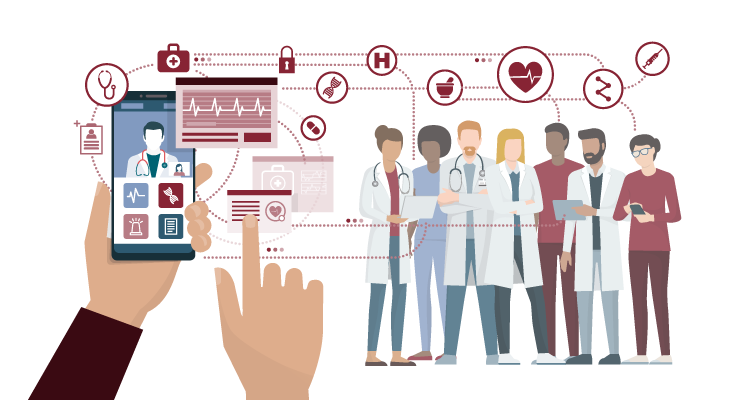
The internet gives people new ways to create communities. Now you can discuss and discover new topics not just with your family, friends and co-workers, but with people who have vastly different experiences than yours. As a professional, this can be life-changing. It can open new avenues for career advancement. It can bring news of job openings in your field, or training so you can enter a new one. For nurses, the internet and social media provide opportunities to share best practices and the latest medical advancements. Social media is a good outlet for discussing job/career questions with other nurses who have different backgrounds and training from you.
Networking for Nurses as a Tool
Blogs
Sharing your expertise online can help increase your visibility in the industry, raise awareness of current trends and concerns in medicine, help people understand their medical conditions and drive traffic to your place of work.
“If you want to make an impact on the nursing profession, and maybe even the world, a blog is a step to leaving a lasting professional legacy,” according to Brittney R. Wilson BSN RN and Kati L. Klieber, authors of “The Nurse’s Guide to Blogging.”
Likewise, bookmarking a few, reliable blogs written by other nurses and health professionals and visiting them regularly can help you keep up with the industry and learn new things. Nurse Journal keeps a list called which they keep relatively up to date.
In addition to blogs, podcasts, vlogs and online newsletters are great ways to share and learn new skills and stay up to date on current trends in your profession via longform, in-depth online media.
Advance Your Nursing Career
Our online RN to BSN program allows you to further your nursing skills and learn about industry topics like healthcare reform and advances in medical technology. By earning your BSN, you’ll be prepared for leadership positions and management career opportunities.
Explore DegreeIn the U.S. there are more than 68 million users on Twitter, the social media network that allows you to blast 280-word messages to other Twitter users. This real-time communications tool is an easy way to stay in touch with colleagues and other peers in your industry. It is also a great tool for sharing breaking news, like drug recalls, health campaigns or emergency information.
More personal than Twitter, Facebook allows you to share private and public messages, upload video and photos and connect with peers, patients and other people in a direct way online.
Social Media and Nurse Networking Sites
AllNurses.com has a robust message board where nurses post job opening and best practices as well as kvetch about their jobs or workplaces (you can post anonymously). The most popular board appears to be the general discussion page, but the site hosts boards for different nursing specialties and for specifics like rural nursing and quality improvement.
Various professional organizations have message boards that are open to members only. The American Association of Nurse Practitioners, for example, has a proprietary message board but also maintains a LinkedIn group, a Facebook page, a special forum for new nurses and on ENPNetwork, a separate professional online network for nurse practitioners. Search for your specialty’s professional organization via nurse.org.
Tips for using social media sites
As a nurse, you have personal and professional expectations for online etiquette and protocol that the average person doesn’t. These protocols are dictated by the Health Insurance Portability and Accountability Act of 1996 (HIPAA), the nursing code of ethics and patient privacy provisions of your employer.
Social media platforms often give the illusion of privacy and security, however, any messaging sent privately to an individual or posted on a closed forum has the potential to become public knowledge. Deleting posts or images from social media platforms does not guarantee that the content is gone for good.
Nurses should generally avoid talking about specific patients online. HIPAA forbids sharing pictures of patients and sharing individually identifiable health information. No matter your profession, speaking negatively about patients, co-workers, your employer or your workplace is generally considered bad etiquette.
Begin your Nursing Career
Advance your career in nursing with the ACEN-accredited RN to BSN online program at Campbellsville University. The online program allows you to further your nursing skills and learn about industry topics like healthcare reform and advances in medical technology. Two 24-hour clinical practicums provide real-world experience. By earning your bachelor’s in nursing, you’ll be prepared for leadership positions and management career opportunities.
